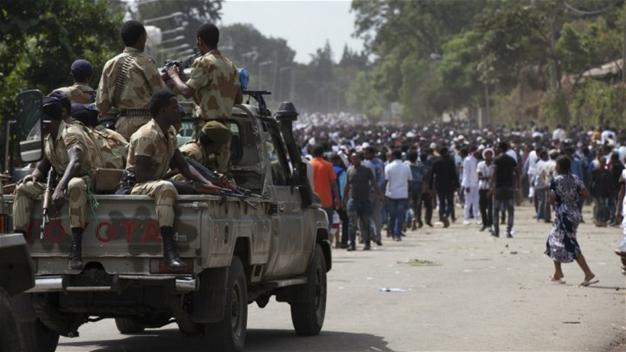Ethiopia ends state of emergency
 Ethiopia’s parliament on Aug. 4 lifted a nationwide state of emergency decreed last year after Africa’s second most-populous country was rocked by months of protests.
Ethiopia’s parliament on Aug. 4 lifted a nationwide state of emergency decreed last year after Africa’s second most-populous country was rocked by months of protests.The state of emergency was allowed to expire, ending 10 months of heightened restrictions and greater police powers. Siraj Fegessa, the defense minister, told an emergency meeting of parliament that, “even though there are a few situations that are happening in some areas, we have understood that it can be handled by the local security and administration.”
“We have assessed the general situation and we have provided a report to the parliament and our decision to lift the state of emergency,” he said.
Ethiopia imposed the state of emergency in October 2016 after protests among some of the country’s largest ethnic groups, unhappy over what they saw as the government’s heavy-handed rule. Though ostensibly a democracy, the ruling Ethiopian People’s Revolutionary Democratic Front and its allies hold every seat in parliament and wield unchecked power in the country.
Since November 2015, demonstrations, sometimes violently suppressed, have led to 940 deaths and 21,000 arrests, according to government figures.
















